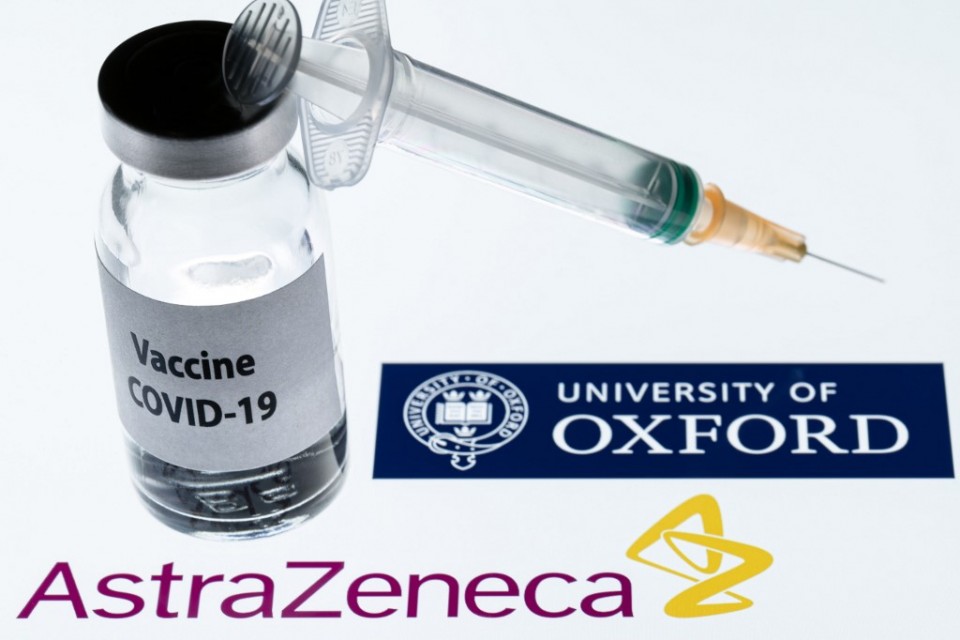Local private firms to buy vaccines and act as donor

(Eagle News) — The Philippines has signed an agreement with the United Kingdom to secure 2.6 million doses of the COVID-19 vaccine produced by the pharmaceutical firm AstraZeneca, which will be purchased by top local businessmen for the country.
The tripartite agreement was signed by national action plan against COVID=19 Secretary Carlito Galvez Jr. who is also the country’s vaccine czar, Presidential Adviser for Entrepreneurship Secretary Joey Concepcion, and country president of AstraZeneca Pharmaceuticals Philippins Inc., Lotis Ramin.
The doses will be part of the country’s mass vaccination program set to start next year.
The country’s private sector, including top local businesses, will buy the vaccines for the country.
Top business firms in the Philippines such as San Miguel Corporation headed by Ramon Ang, Ayala Corporation headed by Jaime Zobel de Ayala, and JG Summit headed by Lance Gokongwei were present during the virtual signing of the deal.
Galvez said half of the vaccines to be purchased by the private sector will be donated to the Philippine government, while the other half will be for use by the private firms.
Galvez commended the private firms helping to buy the vaccines for the government, saying that this bayanihan spirit will help the Philippines to rise above the pandemic.
He said that there are also ongoing negotiations with AstraZeneca for the government to buy 20 million more doses of the vaccine.
Galvez said that they will also seek to secure more vaccine doses from other pharmaceutical companies including Pfizer, Sinovac of China, and Russia’s Gamaleya Center which developed Sputnik V.
https://youtu.be/1eOjxOSI9RY
The Philippine government hoped to start mass vaccination by the late part of second quarter next year, possibly May, June or July, in a best case scenario. It targets to vaccinate 60 million to 75 million Filipinos in efforts to achieve “herd immunity” by breaking the cycle of transmission in the country.
AstraZeneca is also seeking approval to hold Phase 3 of its clinical trials in the country. So far, only Sinovac has been approved for clinical trial.
-UK seeking further studies on AstraZeneca vaccines-
Meanwhile, AstraZeneca and its partner, the University of Oxford, announced on Monday that it was seeking regulatory approval for the vaccine after it showed an average 70-percent effectiveness.
That rate jumped to 90 percent when an initial half-dose then a full dose was given, similar to that in rival vaccines in development by Pfizer/BioNTech and Moderna.
But US scientists have said the higher rate of effectiveness came during tests in people aged 55 and under, and was discovered by accident during the clinical trials.
The head of the Oxford Vaccine Group, Andrew Pollard, said this week that further evidence will be available next month, but the result was still “highly significant”.
“Now that we’ve found what looks like a better efficacy, we have to validate this, so we need to do an additional study,” AstraZeneca chief executive Pascal Soriot told Bloomberg.
He said he expected that to be another “international study but this one could be faster because we know the efficacy is high, so we need a smaller number of patients”.
The additional trial was not likely to delay regulatory approval in Britain and the European Union, Soriot said.
There are high hopes for the AstraZeneca/Oxford vaccine, which Pollard has hailed as a “vaccine for the world” given that it could be cheaper to make, and easier to store and distribute.
It can be stored, transported and handled at normal refrigerated conditions of between two and eight degrees Celsius (36-46 Fahrenheit) for at least six months.
Pfizer/BioNTech’s offering requires temperatures of -70C, driving up costs and potentially making it out of reach for lower and middle-income countries.
AstraZeneca/Oxford has also promised to provide its vaccine to the developing world on a non-profit basis.
(with a report from Vic Somintac, Eagle News Service, and Agence France Presse)








